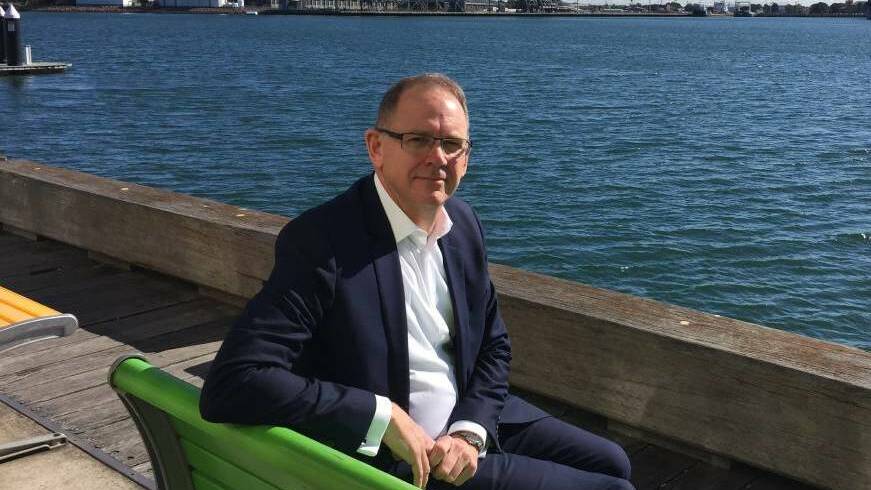
The NSW government should work to remove barriers preventing the development of a container terminal by the Port of Newcastle, a parliamentary committee into the sustainability of the state's energy supply and resources has recommended.
Subscribe now for unlimited access.
or signup to continue reading
The committee's final report, Sustainability of energy supply and resources in NSW, highlighted the critical need for government action to help coal-dependent communities such as the Hunter transition towards a zero-carbon economy.
An inquiry, chaired by Independent MP Alex Greenwich, was established in 2019 in response to concerns communities in coal-dependent areas would face economic and social upheaval if governments failed to prepare for the global shift away from fossil fuels.
The committee made 21 recommendations and 15 findings, covering support for communities, economic and employment opportunities presented by renewable energy, transmission infrastructure, energy management, and forecasts for domestic and export use of energy.
"This report is a call to action and a call to honesty. Domestic and global market forces have responded to the health and environmental damage that comes from coal-fired power generation, but for far too long, we have failed to plan for the transition and provide economic security through investment and skills diversification needed in coal dependent regions," Mr Greenwich said on Friday.

"NSW must undertake locally-led, proactive, and detailed planning, to ensure the energy transition brings everyone along with it. We heard about transitions, like in Germany's Ruhr Valley, where communities participated from the early stages of transition planning. Badly-managed transitions with poorly-planned coal closures can have severe social and economic consequences, as seen in the Appalachian region in the US."
The committee also recommended the appointment of a coordinator to manage the development of energy transition plans for communities that will be impacted by the transition. In particular it recommended funding for the Hunter Joint Organisation's proposed 2050 foundation.
The committee's recommendation regarding the establishment of a container terminal at the Port of Newcastle reflected evidence that state government-imposed barriers to the project were an impediment to realising the full economic opportunities of renewable energy in the Hunter region.
Port of Newcastle chief executive Craig Carmody thanked the committee for recognising the role that the Port of Newcastle could play in supporting the development of the Hunter's economy.

"This is a statement of fact from the current NSW Government that again endorses the Port of Newcastle's long-held position that the container terminal is in the best interests of the local and regional economy," he said.
"The committee's report supports businesses and consumer confidence in the state's hardworking regional centres and we look forward to working with the government to make a container terminal in Newcastle a reality."
Lock the Gate Alliance NSW spokeswoman Georgina Woods said she hoped the government would take the report's findings seriously for the sake of the communities that had powered the state for generations.
"NSW owes a debt to places like the Hunter and the Illawarra, which have done the heavy lifting for so many years. We must ensure people living here are not left behind as the world shifts to a zero carbon economy," she said.
"The time to act was yesterday. These shifts in the global economy are already taking place, with some of our largest trading partners like Japan and South Korea announcing plans to decarbonise.
"The inquiry found overwhelmingly that when structural changes like this occur, clear planning and involvement of the community is crucial.
"In fact, as the report shows, impacted communities need to drive the response, and the Premier and Deputy Premier need to give these communities the support necessary to prepare.
The report also shows that there will need to be an investment in skills and education to provide new opportunities for Hunter workers in the renewable energy sector.
"We welcome the inquiry's focus on skills, community involvement and the needs of the mining and power industry workforce," she said.
"We're particularly pleased to see recommendations that focus on transparency, fairness and maximising the social and environmental benefits of renewable energy investment for mining communities."
"We have a clear way forward, all we need now is for the government to act," Ms Woods said.
The inquiry's terms of reference were updated in 2020 to include opportunities for economic recovery from the ongoing COVID-19 pandemic provided by renewable energy.
The Committee received 254 submissions, and heard from 59 witnesses during four days of hearings.
IN THE NEWS:
Our journalists work hard to provide local, up-to-date news to the community. This is how you can continue to access our trusted content:
- Bookmark: newcastleherald.com.au
- Download our app
- Make sure you are signed up for our breaking and regular headlines newsletters
- Follow us on Twitter
- Follow us on Instagram
- Follow us on Google News


